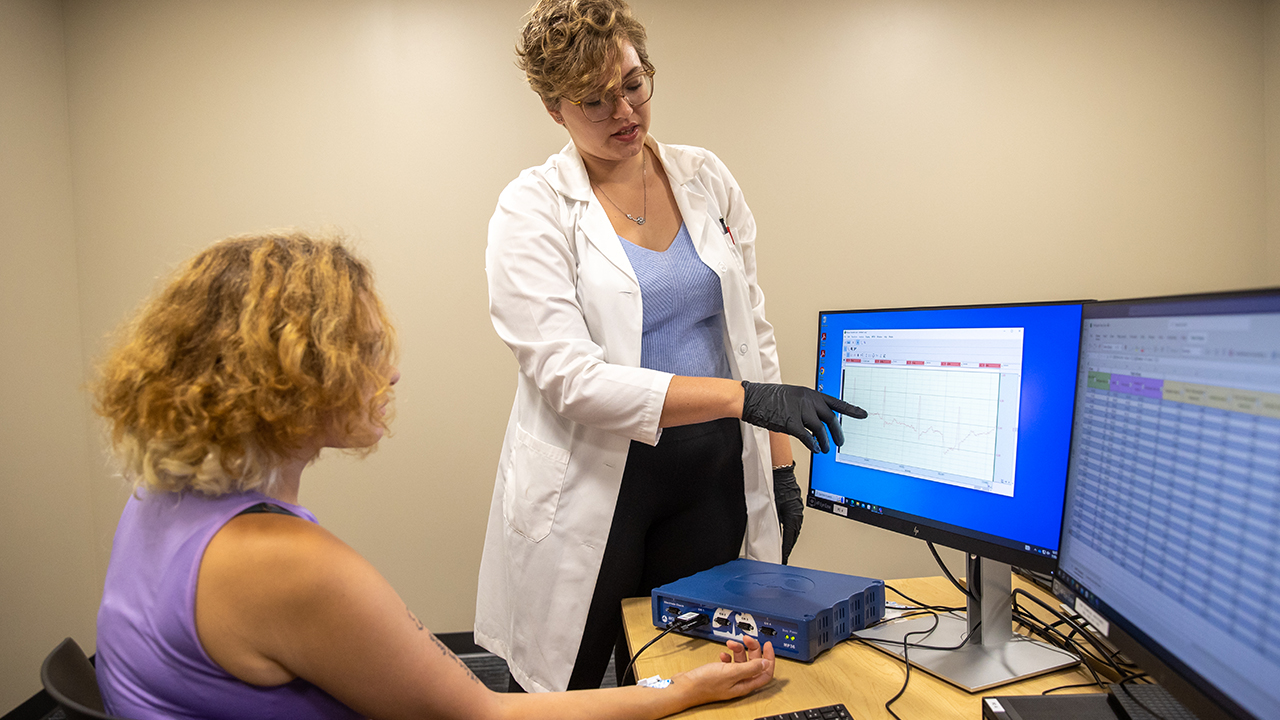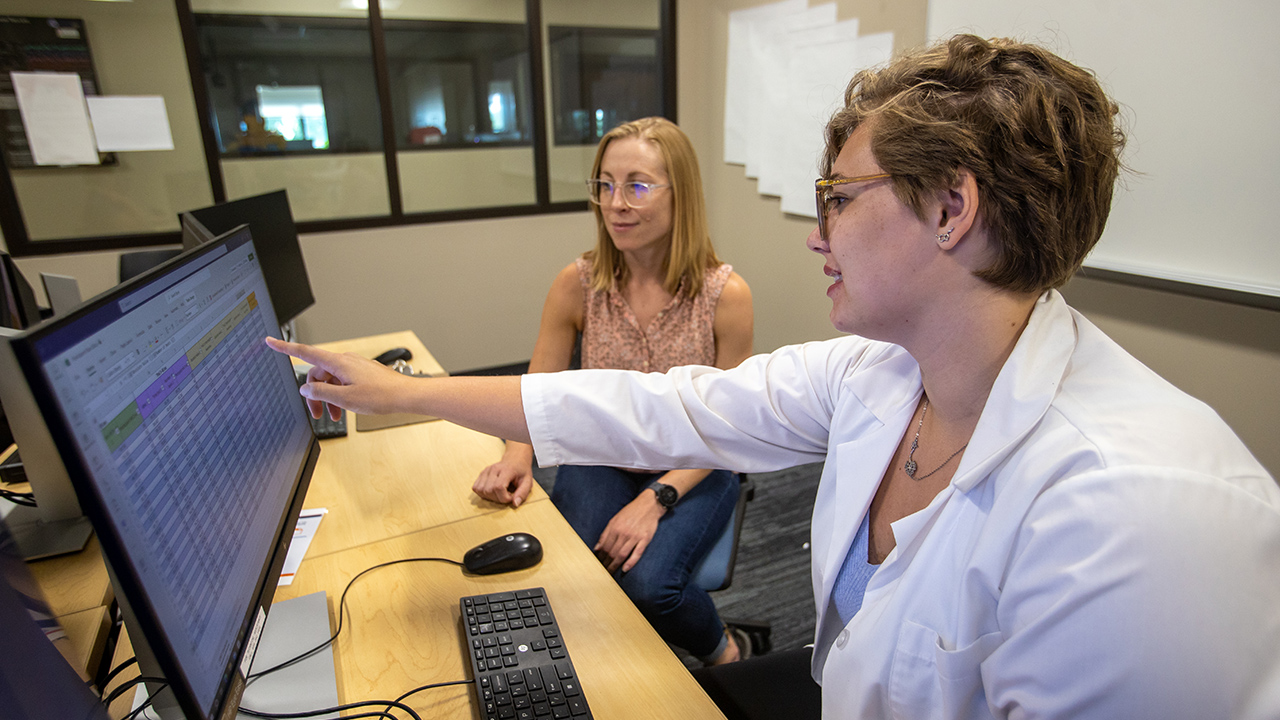

Mollie Johnson, a senior psychology major from Fitchburg, Wisconsin, is spending her summer conducting research that examines cognitive, affective and physiological aspects of human behavior, as a participant in the University of Wisconsin-Platteville’s Summer Undergraduate Scholars Program.
Johnson’s research focuses specifically on interoception – the ability to identify small internal signals a body sends, such as hunger, gastrointestinal cues or a faster heartbeat. In particular, she is exploring interoceptive accuracy – or, how accurate someone is at feeling these signals – and how that plays a role in a person’s response to different social situations.
“Interoception is really how internally in tune you are with your body,” explained Johnson. “It’s a combination of physiology and psychology, and it’s important because when those signals are telling us something, we need to be able to recognize them. The question is, how do these signals impact other spaces in our psychological world and physical world.”
Johnson conducts her research using a heartbeat perception task to measure interoceptive accuracy. Participants count their heartbeats without feeling for their pulse or any other external cues. Johnson uses an electrocardiogram to take actual heart rate recordings and compares the two to calculate a score that measures the participant’s interoceptive accuracy.
Johnson says she has always had a fascination with the mind-body connection, and her faculty mentor, Dr. Kameko Halfmann, associate professor of psychology, helped her develop this research project to explore the idea more.
“In the medical field, we really do separate physical and mental health,” said Johnson, who gave the example of loneliness posing health risks as deadly as smoking up to 15 cigarettes a day – a declaration made recently by the U.S. surgeon general. “That’s just one example. There are so many ways it impacts us. I think, as a society, we neglect the importance of mental health and how it can impact us physiologically and also how our physical health can impact our mental health.”
It’s too early to analyze results of the study, but Johnson explained that if more studies, like hers, do show a connection between interoception and emotional regulation, there could be further opportunities for researching how to train interoception.
“We could look at whether meditation impacts it, or if biofeedback training impacts it. There are different therapy tools we can start implementing,” said Johnson. “Maybe it would mean integrating five minutes of meditation into elementary school classes and helping kids, starting at a young age, to acknowledge that internal system and listen to their body.”
In addition to enjoying the research, Johnson said the Summer Undergraduate Scholars Program has been an invaluable professional experience. The program, now in its sixth year, provides an intensive summer scholarly experience that prepares students for graduate studies. Participants work full time on their research project, as well as attend weekly group meetings to explore additional topics.
“We have workshops every Wednesday, and we are learning skills from how to write a manuscript effectively to how to communicate our material effectively,” said Johnson. “The experience has been professionally so important. I have a CV now that actually looks like a good CV, and I have an online portfolio. The professional tools I gained were so much more than the money I gained.”
As a psychology major, Johnson said she typically doesn’t have an opportunity to find a summer job directly related to her major, which made her even more grateful for this opportunity.
“It’s been a joy and I’m so excited to have this experience and opportunity to do work actually related to my degree, while getting paid.”